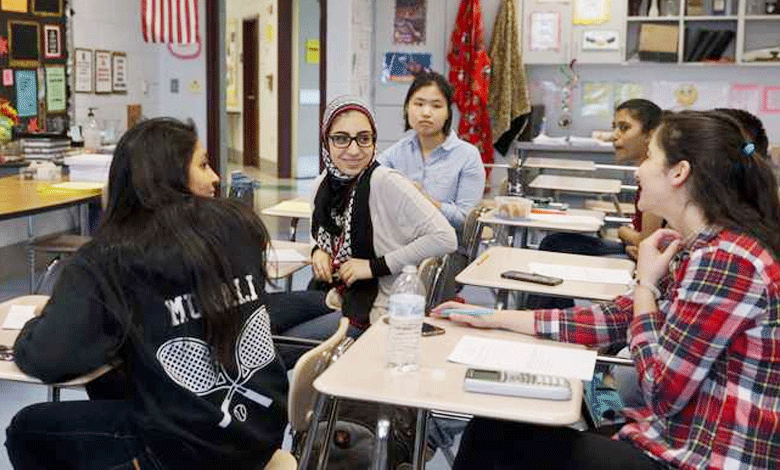U.S. Universities Failing to Address Growing Concerns of Discrimination Against Muslim Students
Notably, 65% of Muslim students claimed that their schools failed to provide any official statements or guidelines related to the Israel-Gaza conflict, leaving them feeling unsupported and vulnerable. This lack of institutional support has exacerbated the sense of marginalization among Muslim students.

Washington: A recent report has revealed alarming levels of harassment and discrimination faced by Muslim students in California universities. According to a survey conducted for the 2023-2024 academic year, 49% of Muslim students in the state reported being subjected to significant harassment and discrimination. The survey included 720 Muslim students, who shared their experiences in response to rising Islamophobic incidents on campuses.
The findings of the report highlight that 37% of Muslim students felt targeted by professors or lecturers because of their religious identity. Additionally, 53% reported being harassed or discriminated against by other students on campus. These incidents have become more pronounced following the escalation of violence between Israel and Gaza in October 2023. The survey revealed that 92% of respondents reported facing discrimination after the outbreak of conflict, with many expressing frustration over their institutions’ lack of response.
Also Read: Donald Trump Set to Make History as the First President with Sexual Misconduct Allegations
Notably, 65% of Muslim students claimed that their schools failed to provide any official statements or guidelines related to the Israel-Gaza conflict, leaving them feeling unsupported and vulnerable. This lack of institutional support has exacerbated the sense of marginalization among Muslim students.
Furthermore, 47% of students who faced discrimination admitted that they refrained from raising their concerns with school administrators, largely due to fear of retaliation or a lack of trust in the administration’s willingness to address the issue. In addition, 36% of the students said they felt unable to express their political views on campus, citing an atmosphere of hostility toward their beliefs.
The report’s findings have raised serious concerns about the environment for Muslim students in U.S. universities, particularly regarding the growing trend of Islamophobia and the lack of proactive measures from institutions to ensure their safety and inclusion. Many advocates are calling for universities to implement stronger policies against discrimination and provide more support to Muslim students facing harassment.
